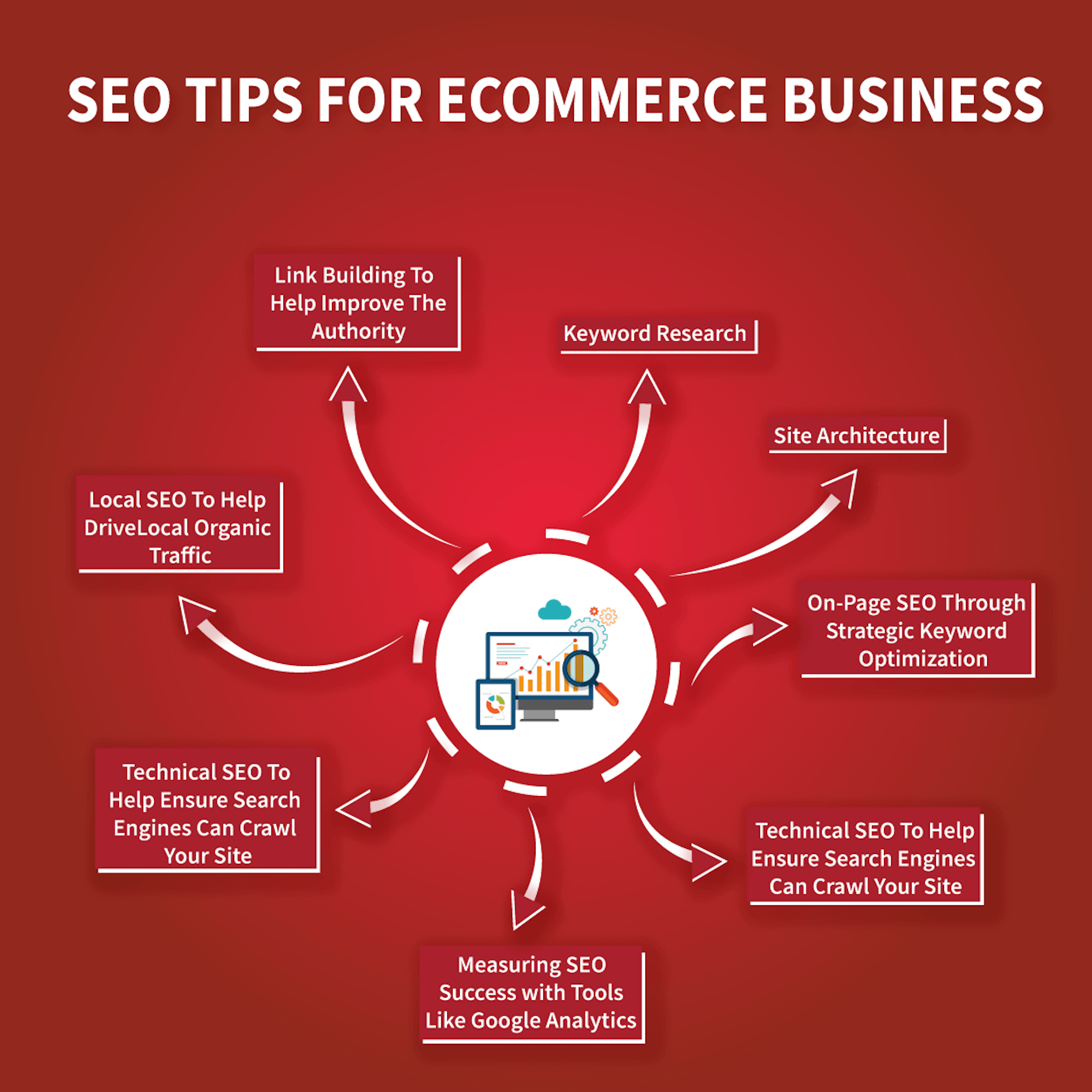Online shopping is already one of the most popular activities online, with consumers spending $601.75 billion online with U.S. merchants in 2019. The industry accounted for nearly 57% of the overall growth in the retail industry last year. Today we are going to talk about some SEO Tips For Your eCommerce Business.
E-commerce was already expected to continue to grow steadily, but that trend has been accelerated by the COVID-19 pandemic. With shelter-in-place orders in effect around the globe, many can’t go out to shop like they normally would. There are also concerns about being infected if you went out.
As a result, eCommerce has exploded. While the final numbers aren’t in yet, eMarketer reports that many stores “are having their best sales ever over the last four to six weeks, even as compared to last Black Friday.”
How can you take advantage of the growth in online shopping? Simple – your company needs to be on the first page when people are searching for products and services you offer.
How does that happen? Search engine optimization (SEO) is the key. Here are the tips you need to excel.
Know What Your Customers Are Searching For – SEO Tips For Your eCommerce Business
The first step in SEO is to know exactly what you need to target. As you build your website, you want to do keyword research to determine the best terms to target in your content and website structure.

Put yourself in the shoes of your buyers. What do you think they would enter into Google if they wanted your products? Brainstorm a list of terms. For instance, if you sell athletic shoes, terms would include “running shoes,” “Nike running shoes,” “shoes for walking,” and other related phrases.
Once you have them, use free keyword tools like Google Keyword Planner to see how popular those search terms are. The best keywords to target are those with high search volumes and moderate-to-low competition. Don’t be shy about targeting long-tail keywords, which have three or more words. These terms are more specific and often signal a higher buyer intent.
Maximize On-Page SEO
On-page SEO involves optimizing your website itself. This includes excellent site architecture, placing the right keywords in the right places, and interlinking your pages with each other.
You want to make sure your keywords are in the web address (URL) and that the URL is easy to read. A customer should know exactly where they are on your website. You also want keywords in headers, in the body of your text, and in the image alt text.
The key to using keywords on your website is to not overdo it. Google’s focus is on delivering highly relevant, useful search results. If your page is stuffed with keywords and hard to read, that’s not the quality Google is looking for, and your website might be penalized.
You also want to use internal links to connect relevant pages on your website. These links help Google understand the structure of your website and show what pages are related. In addition, these links will help customers find their way from one product to a variety of additional purchases.
Build Up Your Reviews

Customer reviews are essential for building consumer confidence in your products. 88% of customers trust reviews as much as they do personal recommendations, so you want to make sure you take advantage of that social proof.
Encourage everyone who purchases products from you to leave a review about the product and their experience. Be sure you respond to each review as well – either thanking someone for a great review or offering to resolve a concern. This will show other buyers that you are involved in your business and you care about your customers.
One of the best parts of having reviews directly on your product pages is that they are user-generated content. This unique, new content helps your pages stay fresh and rank more highly on Google.
Use Search Engine Marketing To Give You A Boost
Search engine marketing (SEM) is the paid portion of search marketing. While you’re building your SEO to get long-term organic results, SEM can help you get a boost in the short-term to help your overall sales.
Google Ads allows you to have ads both within search engine results on Google and on webpages that show the advertisements. This gives you additional visibility – particularly at the top of Google search results – and helps you gain clicks and customers.
You want to be strategic with this approach, as different keyword targets will have different pricing. Be sure your landing pages are high-quality and relevant to the ads to maximize conversions.
Don’t Overlook Platform SEO
Google SEO is a huge source of traffic for any eCommerce business. However, if you sell on specific platforms, make sure you optimize your website and product pages to do well there in particular.
If you operate on Etsy, Amazon, or another major sales website, you want your eCommerce store to stand out among competitors. Use the keyword that users of the platform favor and make your store’s page eye-catching and unique.
You Can’t Overlook SEO

Ignoring SEO and using only paid outreach on social media and sales websites is a common – and expensive – mistake you need to avoid.
Instead, take advantage of search engine optimization, which can bring you consistent organic traffic over a long timeframe. This can help drive sales and minimize the amount you need to spend on paid advertising.
Search engine customers are looking. It’s time for them to find you! Enjoy these SEO tips for your eCommerce business.
Project Tree
"*" indicates required fields




